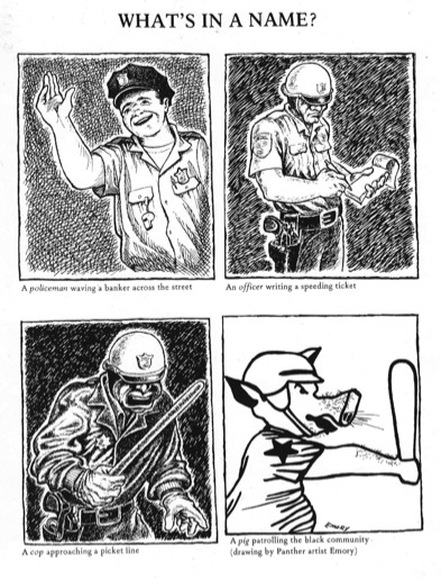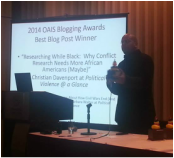Hearing about the death of the two police officers in New York raises a great many issues.
First, the deaths immediately raised the topic of retribution and revenge. Had it been the case that individuals in the population had decided that it was unacceptable to take African American lives and decided to strike back violently? Had it been the case that individuals in the population were done feeling that they had no agency and they decided to strike back? Were they done begging for something to be done? What did it mean that individuals no longer feared directly bringing the fight to political authorities? What did it mean that the fear that normally kept citizens in check had dissolved and they raised arms against the state? Was this the very meaning of individualized anarchy? Would the attacks diffuse throughout the population? How many individuals in the population harbored antagonisms toward the police? How deep and wide did that resentment go? Or, was this an isolated incident of an unstable individual who took an act that could be misrepresented because of the current context?
Third, the deaths of the police officers seems to have invoked a significant amount of sympathy for the police in particular and agents of the government in general despite the recent revelations about their activities and growing mobilization around the topic. Would the killing of “seeming innocents” or armed government agents “on the job” shift the sympathies of the mass population away from raising questions about what had taken place and what was taking place? Would people be too scared about offending the legitimate users of coercive violence who put their lives on the line daily? Would the momentum be lost from those who began to come together in criticism of these agents of the state? Could a separation be made between those criticizing the police and the killer in specific or potential killers in general? Had the scales been shifted? Would the general deference to political authorities be resumed and the growing critical tone from much of the population be stunted?
Fourth, there is the issue of when (if at all) it is acceptable for citizens to use violence. Many political theorists speak of the right to rebellion. In the face of tyranny (i.e., a misuse of coercive power by those in political authority), it was believed that citizens had the right to raise up arms against those in government. Unfortunately these theorists never really dealt with the issue of exactly when someone knew they were in a situation of tyranny. They provided no definitions, no criteria and no measurement strategies. They did not address the fact that governments were the ones who frequently compiled data regarding the use of coercive power. They also did not really discuss any variation in the concept of rebellion. Does such activity have to involve large numbers of people? Does such activity have to involve violence? Does such activity have to lay out a clearly defined plan of action or could it just be a “shot in the dark”? Is all this discussion regarding the death of the police officers and the desire for retribution simply a justification for some violent action with no significance or resonance at all? In this latter categorization, the activity is not some measure of rebellion or signal of dissatisfaction but instead some horrific act of random violence seeking a justification? Could the deaths of the police officers be irrelevant for current discussions?
Questions abound.


 RSS Feed
RSS Feed
